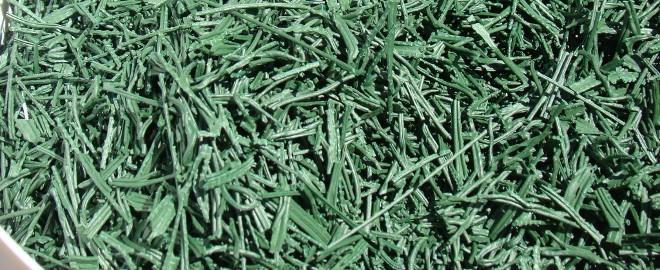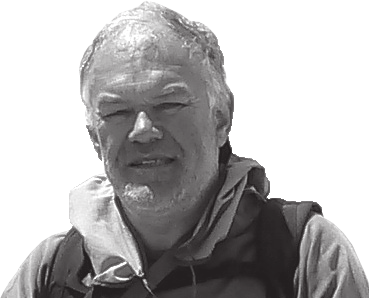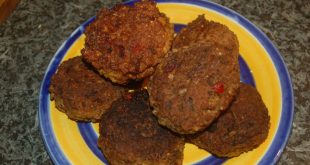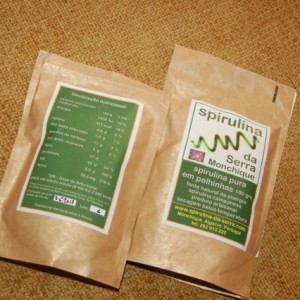
The problem is “contemporary, healthy nutrition” and it’s to do with farming, harvesting, conservation, transport, preparation, with foods that are too fatty, with too much meat and not enough time. Have I forgotten anything? What about excruciating industrial livestock farming, the use of hormones and antibiotics, genetic manipulation…?
There is so much you can do wrong, and there is only one correct way to live healthily. From the outset, ECO123 decided that it would look for solutions to problems. Often, there is a solution right on your doorstep, sometimes even in your own garden and you run the risk of walking past it every day.
People who would like to embark on a vegan lifestyle now have the following option. Those who would just like to sample it too. From Monchique, a new product is coming on to the market, “Spirulina-da-Serra”, an alga that comes neither from the sea nor from China or the USA, but is produced locally in the Monchique uplands with mountain spring water.
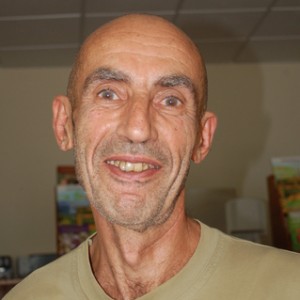
Georges Porta (photo) has been a convinced vegan for many years and belongs to the association A Nossa Terra and its transition group. He produces his algae food supplement locally, in small quantities and in the traditional manner. It is HACCP certified and can be ordered for a fair price via his website Spirulina da Serra. 100 grams cost 15 euros. Spirulina can be bought in the form of powder or granules.
It is Spirulina’s ancient origins, which speak for themselves over several millennia, that make it viable for the future. Because Spirulina is nothing new, just not very well known, as it doesn’t have the big marketing budget of a food multinational for pushing its products. In short, Spirulina-da-Serra is a blue alga that is produced at a temperature of around 35 degrees Celsius and dried at a low temperature, with a high protein, iron, beta-carotene and vitamin B12 content. It is supposed to be healthy.
At least 42 grams of the 100 gram package are pure protein. Production requires 2,100 litres of water per kilo. That is incredibly good value compared with every kilo of beef, which requires up to 105,000 litres of water before it reaches the plate.
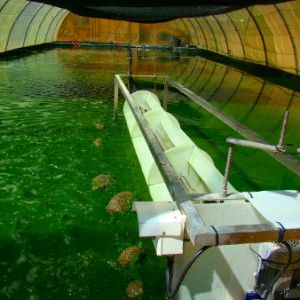 When spirulina is growing, carbon dioxide (CO²) is consumed from the atmosphere and turned into oxygen, among other things. If we were all vegans, or at least vegetarians, we ourselves could contribute a little to improving the climate balance of mother earth.
When spirulina is growing, carbon dioxide (CO²) is consumed from the atmosphere and turned into oxygen, among other things. If we were all vegans, or at least vegetarians, we ourselves could contribute a little to improving the climate balance of mother earth.
And so ECO123 just advises you to make yourself a bit wiser every day, to grow sustainably, also in terms of being well informed, and to consider whether, and if so how, Spirulina-da-Serra could be eaten. For example, as hummus, or a taboulé (couscous) dish, in an avocado purée as guacamole-spirulina or as a courgette vegetable dish, but also as a dessert, for example as a banana/lemon smoothie or banana/chocolate cream…
Georges Porta aims not only to produce locally and sell his product along “fair trade” lines, but also offers anyone who is interested in starting their own production a workshop for learning how to do it.
www.spirulina-da-serra.com
info@spirulina-da-serra.com
Telephone 00351-282 913 225
 Eco123 Revista da Economia e Ecologia
Eco123 Revista da Economia e Ecologia

